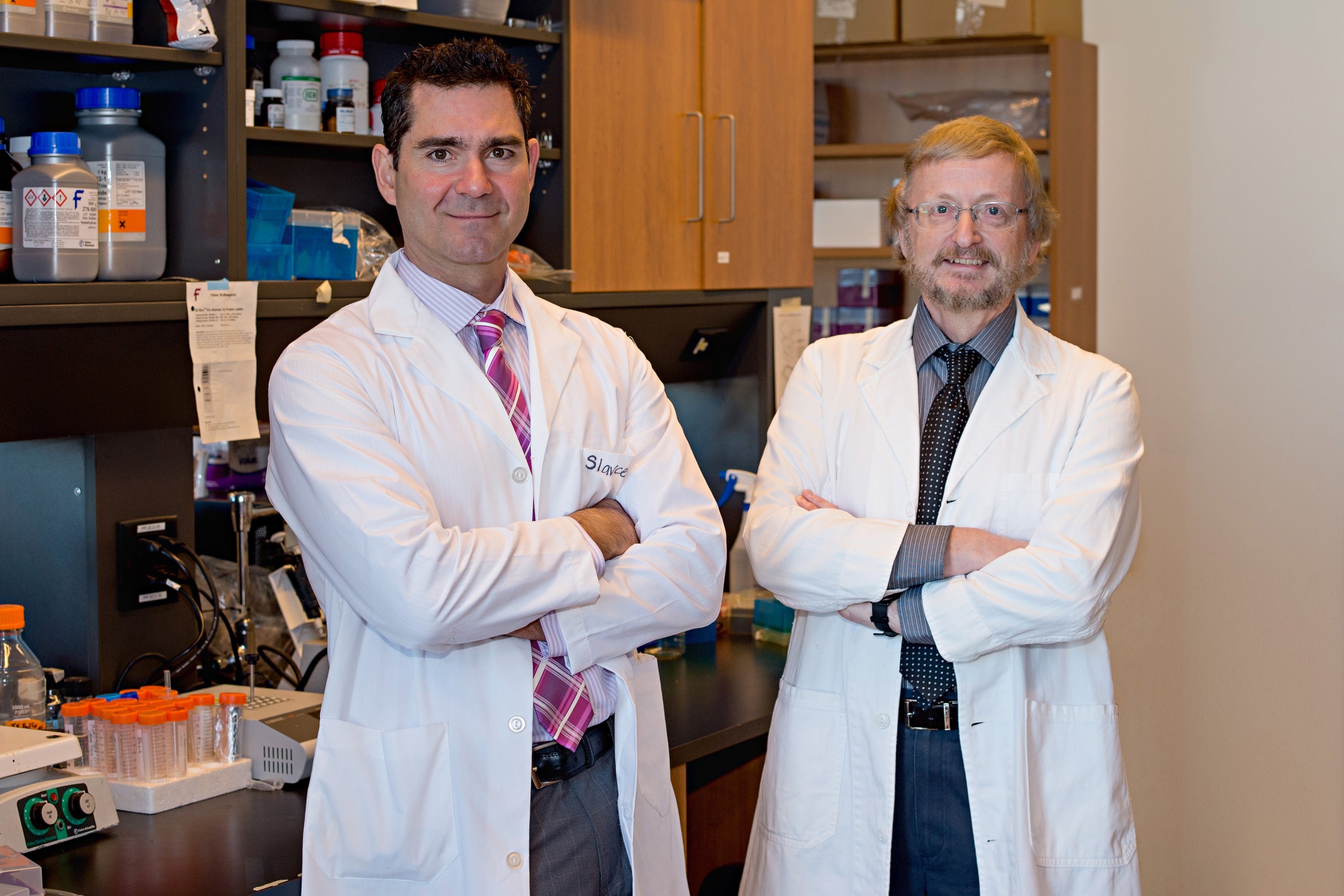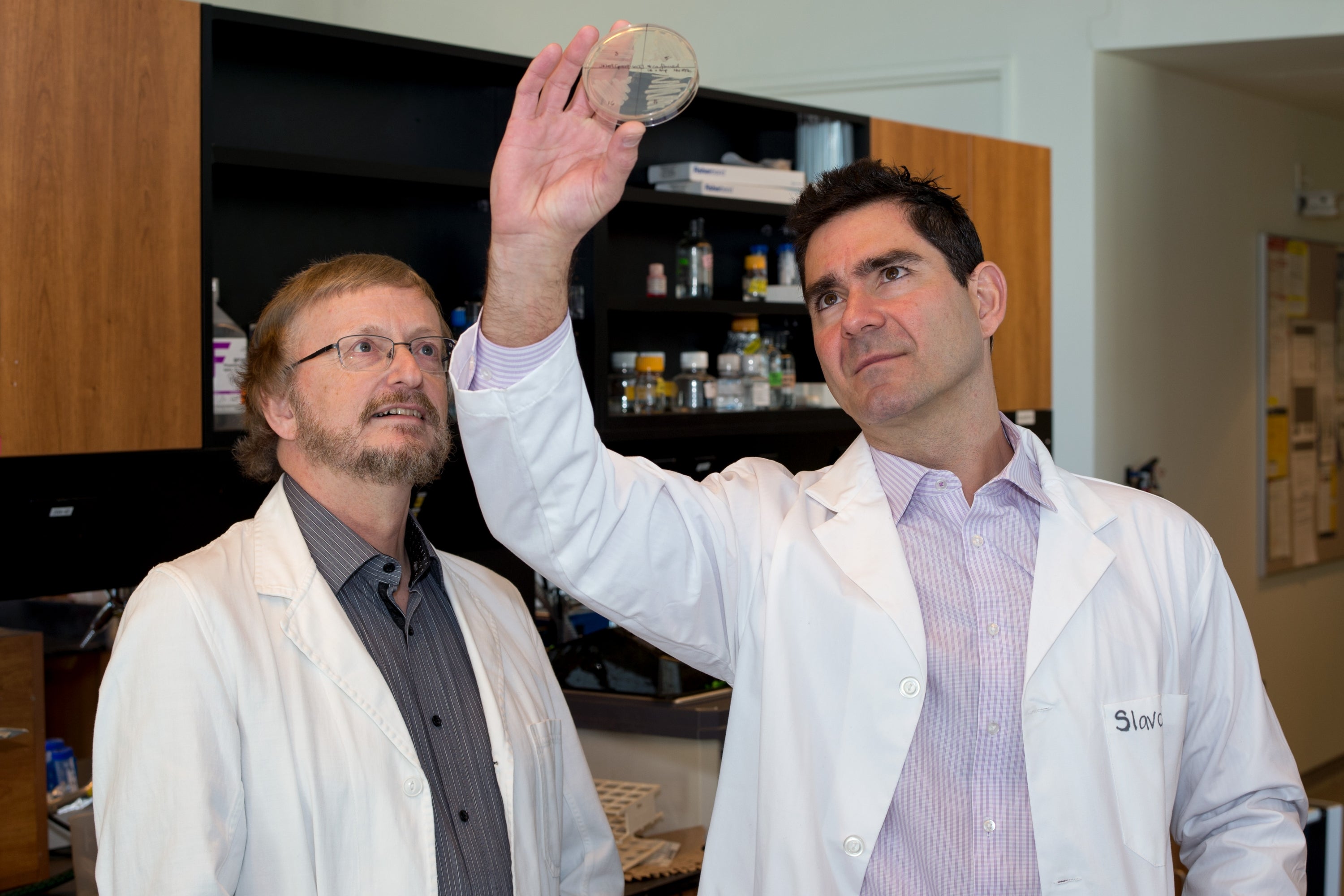
Two researchers in the Pharmacy School have combined their very different backgrounds to try a new way of attacking one of the most common adult cancers.
Associate Professor Roderick Slavcev is a virologist whose research focuses on a lesser-known group of viruses called bacteriophages. Bacteriophages are viruses that infect and replicate within bacteria.
Because they target bacteria cells specifically, Slavcev believes that bacteriophages present a safe avenue for viral gene therapy, a type of treatment that uses viruses to deliver DNA to the cells to cause change. Humans have trillions of bacteriophages naturally found in our large intestines, and Slavcev’s research group has developed methods to engineer these phages so they are able to deliver therapeutic activities to human cells.
Professor Jonathan Blay studies cancer and is interested in novel ways to attack cancer tissues and prevent metastasis, the spread of cancer. His work at the School of Pharmacy ranges from studying the reasons that existing treatments lose their effectiveness to examining cells from patients to look for clues to the best choice of treatment.
Much of Blay’s focus is on colon carcinoma. This cancer of the large intestine can often be detected and treated by early screening but is still a major challenge because of the aging population and the cancer’s increasing appearance in younger adults.

Blay and Slavcev have brought their focuses and methods together to explore how bacteriophages can combat colon carcinoma. They realized that many of the bacteriophages that can be modified by molecular engineering are natural inhabitants of the large intestine – the place where cancer carcinoma develops. Thus, the researchers have combined their skills and experience to design techniques that use phages as natural ‘stealth agents’. These agents can locally attack the tissues of the cancer without provoking the body mechanisms that would normally defend against foreign molecules.
Aiming to develop their work beyond the academic laboratory, Slavcev and Blay are working through their company Mediphage Bioceuticals to link with global partners who have the resources to fully exploit this potential weakness in cancer’s armour.